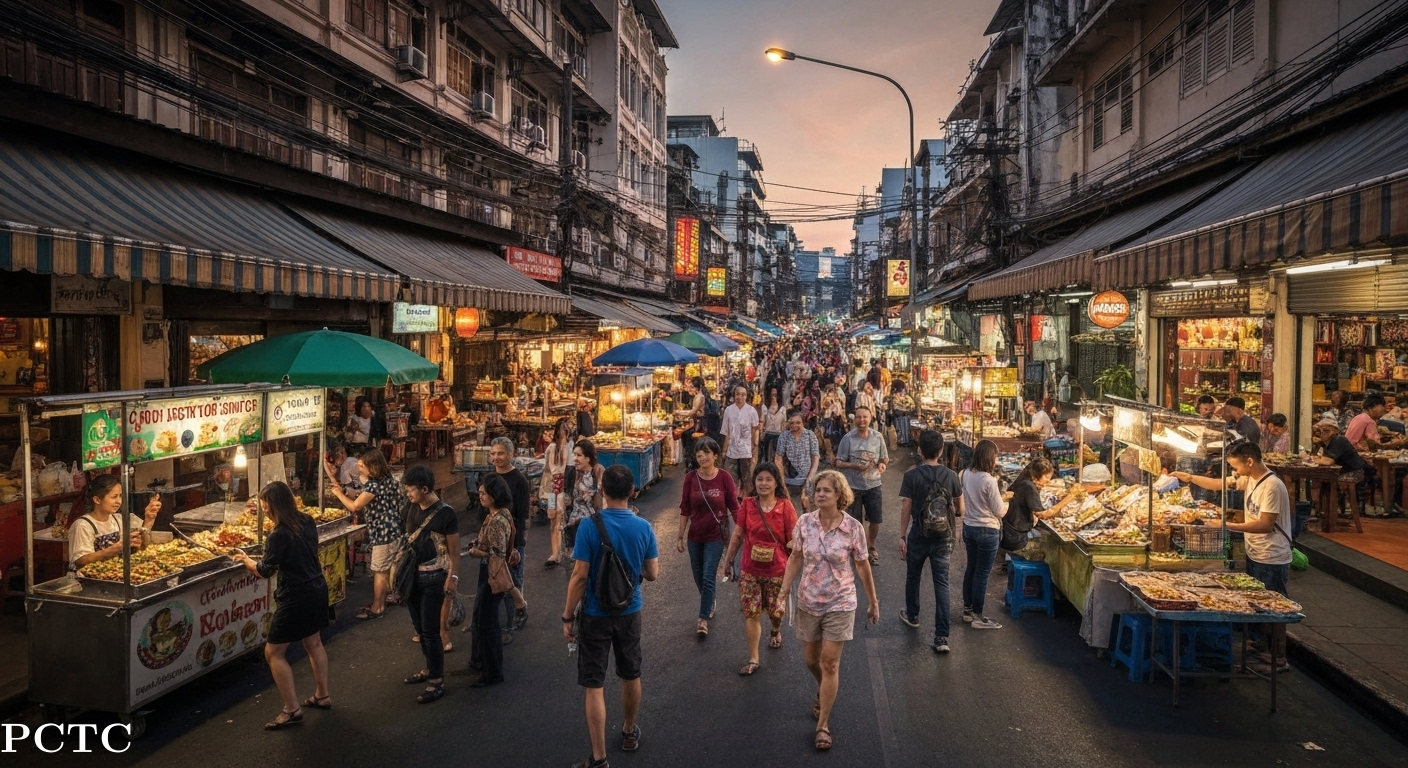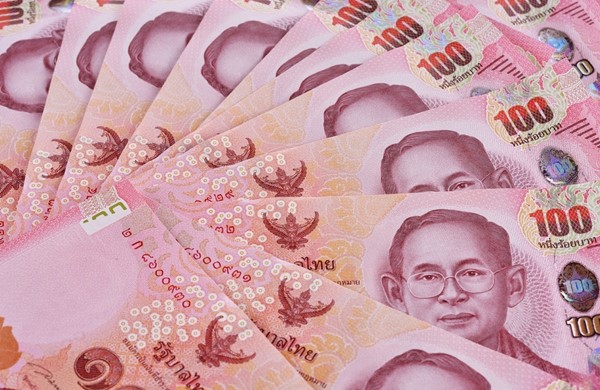
Do You Tip in Thailand? A Comprehensive Beginner's Guide
Thailand welcomes you! While you put on your shoes to explore the streets of Bangkok and beyond, one question that most new travelers will often find confusing is, how does tipping work around here? Well, here the tipping rules are not always set in stone as in many Western countries. The goal is to clarify any ambiguity regarding tipping in Thailand so you can express your gratitude in a proper way, with no awkward moments whatsoever. From start to end, let us make your trip as smooth and enjoyable as possible.
Understanding Tipping Culture in Bangkok, Thailand
The tipping culture in Thailand is definitely much more flexible, especially in a busy city like Bangkok, than anything you may be used to. Tipping is certainly not a Thai tradition, so tourists are usually said to have the freedom of accepting it or not. It is very unlikely to find a staff member expecting a tip for everything done.
Nevertheless, since tourism picked up, leaving a little extra for good service has become the custom, and it is always welcomed with gratitude. For someone arriving in a foreign country, knowing when and how to tip with the local currency – Thai baht – could help to show gratitude and utmost respect.
Is Tipping Expected or Optional for Tourists?
Unlike in some countries, tipping in Thailand is sometimes noted by the locals, if at all. Not leaving a tip will not get you any disapproving looks from the locals. While there is no real tradition of tipping in Thailand, it hasn't gotten into the mindset of being an expected part of any business transaction.
A tip represents appreciation for services rendered in an extraordinary manner. Though it is not mandatory, a small amount in baht would say a big thank you. Many hands are involved in the service; theirs are usually minimised for their profit. Your little well-meaning bit of cash could just mean a lot to the one who truly helped you in that endeavour.
Flip through your bill, just a glance; most fine-dining places have already added a 10% service charge. For these places, consider putting down some extra cash only if the service was really worth it.
How Tipping Differs Between Locals and Visitors
One can easily notice disparities in the attitude of domestic migrants and tourists in terms of tipping. In fact, most Thai people do not tip at all, as they do not tip in most normal situations, and when they tip, it is typically something as small as leaving one coin of change from a bill at a casual restaurant. This is often more for the convenience than as a tip for the service.
In general, tourists are from countries where tipping is believed to be a ventilator of good service, thus destructively tipping high. So, stereotypical is this that some service personnel even expect to be tipped more when they have foreigners as customers, especially Americans, as if to say, "It's nice if they do." It's not a prerequisite, though.
Therefore, it is best to compromise. Being obliged to tip generously isn't necessary, but an appropriate amount for good service is a nicety aligned with the developing norms of tourist areas. The additional amount is to be considered as an individual choice, not as a social obligation.

Tipping Etiquette in Popular Settings
To ensure you are as prepared as possible, we will look into the actual tipping etiquette practised in the major situations you are likely to face in tourist Thailand. With some general customs in mind regarding restaurants, hotels, and transportation, you could reward good service with confidence.
If not, these guidelines should help you choose a way to display gratitude in a manner that is considered appropriate and appreciated, whether you have received good service or really good service.
Restaurants, Street Food, and Bars
It is important to check your bill for a service charge when dining at any restaurant. In many mid-range and upscale restaurants, a 10 per cent service charge is automatically added. In such cases, no tip is requested. Should there be no service charge and you were happy with your meal, leaving about 10 per cent or rounding it off to the nearest 100 baht is considered generous.
For casual eats and local eateries, it is perfectly acceptable to leave behind a 20 baht note on the table as a thank you. Tipping when eating street food is discouraged. However, again, if it is a great meal that one wants to appreciate, one may simply tell the vendor to keep the change.
Bar tipping etiquette can get a bit sketchy. If you're ordering drinks directly from the bar, tipping isn't necessary. However, for those friendly servers that merrily bring drinks to your table all night long, rounding the bill off or leaving a 20-100 baht tip would serve as a lovely gesture in recognition of their efforts.
Hotels, Spas, and Massage Parlors
When you're at a hotel, it is reasonable to tip for personal services rendered. For bellboys, a tip of about 50 baht is the norm. For housekeepers, leaving 20 to 100 baht every day on the pillow is a nice thing to do, and the amount depends on the hotel's standard; that is, a smaller tip for a standard hotel and a heavier one for a luxury resort. And since your housekeeper could vary, it would be apt to tip on a daily basis.
After a relaxing traditional Thai massage, it is common to tip the massage therapist. Such therapists usually work on a commission basis and only get a fraction of the full amount you pay. A tip of 50-100 baht for an hour is appreciated, especially if you really think that they did a great job.
At spas, a common guideline for a tip for great service is 10-15% of the cost of treatment. A little generosity can go a long way in making the hard-working staff feel appreciated.
Taxi Drivers, Private Drivers, and Tour Guides
Simply put, taxi drivers don't usually expect tips. However, if you think your driver exemplifies all that is good – a friendly disposition, slight assistance with your bags, and a smooth meter operation – a rounding up of the fare to the nearest 50 or 100 baht would be a considerate gesture towards this small gratuity, which appreciates good service.
For prolonged trips undertaken by private drivers, tipping ranges substantially upwards. The basic tipping appropriate for a driver who might have worked for a few hours or a full day is put at a bracket of 200-500 baht, in most cases being safe, reliable, and helpful.
For your guide(s), small personal tips are given at the end of the day to small-group and private tours, in the order of 100-200 baht per person. On a large-group-scale tour, tipping is generally not anticipated simply because it is less personal.
Conclusion
Tipping culture in Thailand is an exciting experience for visitors and very much worth learning. We have understood that tipping is not always obligatory but mostly appreciated; therefore, an understanding about the local customs is the important thing. Each of the places – from the hectic restaurants of Bangkok to the calming spas – has its own unwritten rules regarding what to give for tips. This manual will enable you to affordably express your thanks while following the local practices. Sometimes it's just worth remembering that a small gesture can brighten someone's day. Keep these points in your head while visiting Thailand for a nice and smooth travelling experience. I wish you happy holidays with enriching experiences from the beautiful warmth of Thai hospitality! Feel free to reach out if you have any questions or need further assistance!
